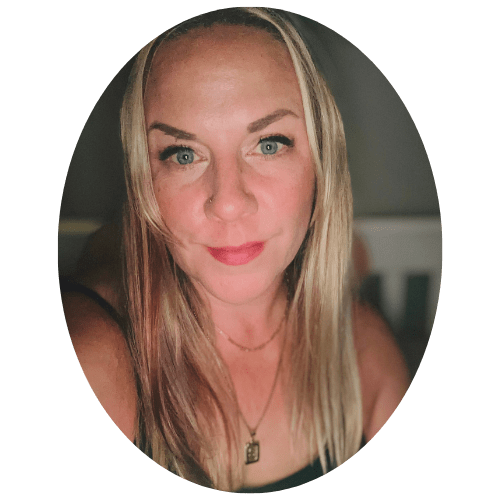How to Write a Therapy About Page That Feels Human (Not Like a Résumé)
Hello, World!
Ask most therapists which page of their website feels the hardest to write, and nine times out of ten, they’ll say the About page.
Not because you don’t have a story to share, but because it’s tricky to know what belongs there and what doesn’t.
Do you talk about your training?
Your personal journey?
The clients you love to work with?
All of the above?
It’s easy to overthink it and end up with something that feels either too much like a résumé… or way too personal.
Here’s the thing: your About page isn’t just a formality. Marketing firms like HubSpot regularly list the About page among the top few most-visited pages on websites. For many people, it’s where they decide whether you feel approachable, trustworthy, and like the right person to help.
And here’s a little secret: the About page is actually my favorite page to write. Why? Because it’s the place where we get to blend your heart, your story, and your expertise into a page that feels both professional and deeply human. Done well, it doesn’t just inform, it builds instant connection.
Why Your About Page Matters More Than You Think
Your About page is where potential clients go to “meet” you. It's where they can see you as more than just a brilliant, amazing therapist. Before they ever pick up the phone or send an email, they’re silently asking themselves:
Does this therapist feel approachable?
Do I trust them with my story?
Do they seem like someone who understands what I’m going through?
It’s one of the few pages that bridges the gap between your professional expertise and your personal humanity. And that balance is what helps people feel safe enough to reach out.
Common Mistakes Therapists Make on Their About Pages
After writing my fair share of therapist websites, I’ve noticed a few patterns.
1. Making it a résumé
Degrees, licenses, and trainings matter. Of course they do! But when they’re stacked in bullet points without context, they don’t mean much to a client who’s just trying to get through the day.
2. Oversharing
Yes, sharing why you became a therapist can be powerful. I call it your "origin story." But oversharing the details of your personal struggles can blur boundaries and make clients feel uneasy.
3. Talking only about yourself
It’s your About page, but if every sentence is “I… I… I…”, clients miss out on hearing how you can help them.
4. Relying on jargon
Phrases like “I use CBT and DBT interventions to address maladaptive cognitions” might be true, but they won’t connect with someone who just Googled, “Why do I feel anxious all the time?”
The “Just Right” Formula for Your About Page
So, what actually works? Here’s the formula I use to help therapists write About pages that feel both professional and human.
1. Start with your “why”
Open with what inspired you to do this work. Maybe it’s a value you hold, a pattern you’ve noticed in your community, or a moment when you realized you wanted to support people in their hardest seasons.
Example: “This work is rooted in the belief that no one should face their struggles by themselves.”
2. Blend credentials with compassion
Your training is important. Ensure you frame it in a way that shows clients how it benefits them.
Instead of: “I am a licensed clinical social worker with 20 years of experience in CBT and DBT.” Try: “For over 20 years, I’ve helped people quiet self-criticism, navigate life’s transitions, and build steadier confidence using approaches like CBT and DBT.”
3. Show a glimpse of you
Clients want to know there’s a real person behind the professional. A line or two about your love of hiking, your rescue dog, or your morning coffee ritual goes a long way toward building connection.
4. Speak to the clients' hopes
Your About page isn’t just about who you are. It’s also about what clients want most. Include a line or two that connects your work to the transformation they’re looking for.
Example: "For adults navigating burnout or constant worry, therapy can promote small but meaningful shifts toward feeling grounded, balanced, and more connected to life."
5. End with an invitation
Every page of your website should include a call-to-action, and your About page is no different. This doesn’t have to be pushy. It’s simply about clarity.
Examples:
“Schedule your free consultation today.”
“Reach out today. I’d be honored to support your healing journey.”.
How I Help Therapists Write About Pages That Sound Like Them
One of the biggest fears therapists share with me is, “But what if it doesn’t sound like me?”
I get it. Your About page is personal, and it has to feel authentic. That’s why I don’t just send you a draft and hope for the best. When we work together, I start with a detailed questionnaire that helps me understand not only your credentials and specialties, but also your values, personality, and the kind of clients you most want to reach.
From there, we hop on a strategy call where I ask deeper questions, listen for the phrases you naturally use, and get a feel for your vibe and voice. That way, when I write your About page, it doesn’t sound like generic marketing copy; it sounds like you. Clear, warm, and client-friendly.
About Page Do’s and Don’ts
Sometimes it helps to see it laid out clearly. Here’s your quick cheat sheet:
✅ Do:
Write in plain, compassionate language
Share your values and approach
Include a warm, professional photo
Balance personal and professional details
End with a clear call-to-action
❌ Don’t:
Turn it into a résumé-only page
Overshare deeply personal struggles
Rely on jargon or acronyms without explanation
Make it all about you—keep clients in mind too
More Than an Introduction
At the end of the day, your About page is really about connection.
It’s the place where you say: “Here’s who I am. Here’s how I can help. And here’s why I care.”
It’s also one of the most powerful spots to build trust with both clients and Google. (Remember E-E-A-T? I wrote a blog about it. Google looks for Experience, Expertise, Authoritativeness, and Trustworthiness. And your About page is a natural place to highlight all four.)
Your About Page, Your Invitation
Writing your About page doesn’t have to feel overwhelming. Think of it less like a résumé and more like an invitation.
Share enough of yourself that people get a feel for who you are, but keep the focus on how you can support them. When you find that balance, your About page transforms. It’s no longer just another section. Instead, it becomes a key reason why someone picks you as their therapist.
And here’s the part I love: the About page is actually my favorite page to write. I’ll use my questionnaire and strategy call to find the key parts of your story. Then, I’ll help you express them in a warm, authentic way that matches your voice.
Because your future clients don’t want the “perfect therapist.” They want the real you. And your About page is the very first step in showing them exactly that.
And if you’d like support writing yours, I’d love to help you create an About page that feels authentic, client-friendly, and completely you.
Suzanne Griffin is a mental health copywriter who helps therapists, group practices, and wellness providers across the US and Canada find the right words to reach the people who need them most. With nearly a decade of professional writing experience, she blends strategy, SEO, and empathy to craft content that builds trust with both clients and Google. Passionate about reducing stigma and translating clinical expertise into client-friendly content, Suzanne ensures therapists’ voices shine online. Based in Orlando, Florida, she can usually be found with her nose in a book, snuggling with her dog and cats, or brainstorming her next blog idea.
❓ FAQs About Therapy About Pages
Q: What should a therapist include on their About page?
A: Include your “why,” your training explained in client-friendly language, a glimpse of your personality, how you help clients, and a clear call-to-action.
Q: How do I make my therapy About page client-friendly?
A: Write in plain, compassionate language. Avoid jargon, speak directly to the clients' hopes, share a little of your humanity, and keep the focus on how you can help.
Q: Should therapists share personal struggles on an About page?
A: It’s fine to briefly share your “why,” but avoid oversharing. Keep the focus on clients, not your story, so the page builds trust and maintains boundaries.
Q: Why is the About page important on a therapist's website?
A: The About page is often one of the most-visited pages, right after the homepage. It helps potential clients decide if you feel approachable, safe, and trustworthy.
Q: How do I end a therapy About page?
A: End with a warm, clear call-to-action such as “Schedule your free consultation” or “Reach out today.” This gives visitors an easy next step.




